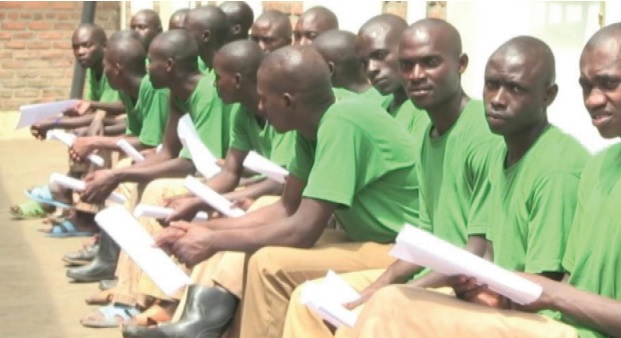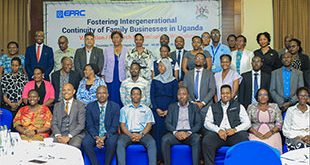
Currently, female offenders are housed in transit centres and released
Kampala, Uganda | JOHN MBARAGA | Young women and girls who have veered off the right path and have fallen into life of crime will have a chance to rebuild their lives after government unveiled plans to establish a rehabilitation centre target females.
The centre, to be based in the Eastern Province district of Bugesera, is part of efforts by the government to ensure every Rwandan achieves their full potential and contribute to national development, officials said.
It also seeks to reduce vices like prostitution, alcoholism and drug abuse among young women and girls in Rwanda. Currently, Rwanda has three rehabilitation centres, but none of them handles female delinquents.
The Rwf3 billion centre is being constructed by developing and expanding the Gitagata Rehabilitation Centre, and works are expected to be completed in December 2019, according to the National Rehabilitation Service. It will accommodate a total of 1,000 delinquents, 500 young female and 500 females below 18 years old.
“The centre targets to rehabilitate prostitutes, drugs users, and other females involved in different illegal activities that can destabilize the general order of society,” says Aime Bosenibamwe, the National Rehabilitation Service (NRS) director general.
He explains that, currently, those female offenders involved in such activities are housed in transit centres for about two months and released.
“Currently, we have no centre that rehabilitates adult female delinquents. Those who pass through to transit centres are rehabilitated and, presently, some are working in cooperatives,” he adds, noting that NRS works with partners who rehabilitate female delinquents.
“Alongside rehabilitation, we will train them in various vocational skills trades to ensure that when they go back home they can be useful citizens and fend for themselves instead of engaging in crimes and becoming a burden to communities and the country,” says Bosenibamwe.
Bosenibamwe, notes that the institution doesn’t have exact figures of females involved in these illegal acts, saying that NRS will conduct research to establish the numbers to guide planning and level of intervention.
“I believe we will have the number of female involved in delinquency by February 2019… For us to be able to identify the root causes of delinquency, we need to carry out a scientific study,” he said.
Impact of rehabilitation services
According to Bosenibamwe, the youth that have been rehabilitated and reintegrated in communities are doing well “as they were trained on vocational skills”.
The relapse rate is about 10% of those who were rehabilitated returned to life in crime, while 20% have been readmitted to Iwawa Rehabilitation Centre. Since the centre started operations about six years ago, 15,803 youth were rehabilitated and, presently, 4,000 youth are admitted and undergoing rehabilitation. A total of 4,485 were rehabilitated trough other rehabilitation centres.
Bugesera-based Gitagata Rehabilitation Centre handles children below 18 years of age, and currently has over 400 juveniles undergoing rehabilitation and training, says NRS.
Bosenibamwe say; “Our mission is to reach a state where delinquency will no longer be a problem or burden in this country. Though we might still have some few cases, we want to ensure that the problem will be under total control.”
He adds that NRS goal is to ensure Rwandans live in peace without threats from such young criminal individuals to “promote national security or national development”.
 The Independent Uganda: You get the Truth we Pay the Price
The Independent Uganda: You get the Truth we Pay the Price





